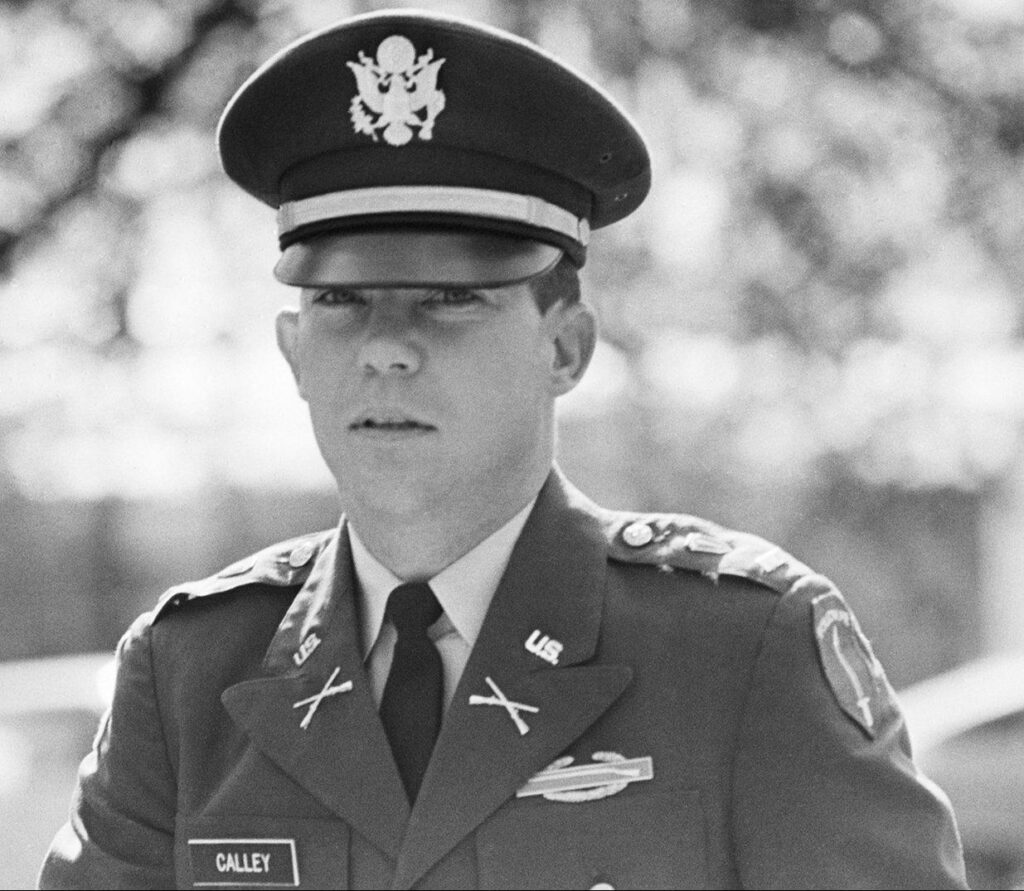On a spring morning in 1968, the small village of My Lai in Vietnam was engulfed in a tragedy that would haunt the world for decades to come. At the center of the massacre was Lieutenant William Calley, whose name became synonymous with the horrors of war crimes. Now, more than fifty years later, Calley has passed away at the age of 80, but his legacy continues to be a cautionary tale in the halls of the US Army. Despite his death, Calley’s actions at My Lai and the subsequent trials serve as a stark reminder of the importance of preventing atrocities in times of conflict. Let us delve into the enduring lessons learned from Calley’s infamous role in the My Lai Massacre and the ongoing efforts to ensure that such atrocities are never repeated.
Lessons Learned from William Calleys Legacy in Army Training
William Calley, the former Army officer responsible for the infamous My Lai Massacre during the Vietnam War, passed away at the age of 80. Despite his controversial legacy, Calley’s actions are still being used as a cautionary tale in Army training programs to prevent future war crimes.
Some key lessons learned from William Calley’s legacy in Army training include:
- The importance of upholding the laws of war: Calley’s disregard for the rules of engagement led to the senseless killing of innocent civilians. Army personnel are now trained to always follow international humanitarian laws in conflict situations.
- The responsibility of individual soldiers: Calley’s role in the massacre highlighted the importance of personal accountability in wartime. Soldiers are now taught to speak up and report any unethical behavior to prevent atrocities like the My Lai Massacre from happening again.
Effective Strategies for Preventing War Crimes in Military Operations
It is essential for military operations to implement effective strategies to prevent war crimes, such as the tragic events that occurred during the My Lai Massacre. One way the Army is addressing this is by using historical examples, like the case of William Calley, to teach valuable lessons about the importance of upholding ethical standards in combat.
By incorporating real-life stories like that of William Calley into training programs, soldiers can better understand the consequences of unethical behavior in warfare. Through discussions, simulations, and scenario-based training, military units can learn to recognize warning signs of potential war crimes and take proactive measures to prevent them from happening. Ultimately, by raising awareness and fostering a culture of accountability, the military can help ensure that atrocities like the My Lai Massacre are never repeated.
Importance of Remembering Tragic Events like the My Lai Massacre
William Calley, the former Army lieutenant responsible for the My Lai Massacre during the Vietnam War, has passed away at the age of 80. Despite his controversial past, Calley’s actions are still being used in Army lessons as a cautionary tale to prevent war crimes like the My Lai Massacre from happening again.
It is important to remember tragic events like the My Lai Massacre to honor the victims and to learn from the mistakes of the past. By studying and understanding the atrocities that occurred, we can work towards preventing similar atrocities in the future. Remembering and educating others about these events helps to promote peace, justice, and accountability in our society.
Honoring the Victims of War Crimes through Continued Education and Awareness
Despite his recent passing at the age of 80, William Calley continues to be a prominent figure in Army lessons focused on preventing war crimes, particularly those similar to the tragic events of the My Lai Massacre. Calley’s involvement in the massacre, where hundreds of unarmed Vietnamese civilians were killed by U.S. soldiers, serves as a stark reminder of the atrocities that can occur in times of conflict.
In these lessons, soldiers are educated about the importance of upholding ethical standards and the consequences of failing to do so. By learning from past mistakes and understanding the impact of war crimes on individuals and communities, the hope is that future generations of military personnel can actively work towards preventing such atrocities from occurring again. Through continued education and awareness, we can honor the victims of war crimes and strive for a more just and peaceful world.
The Conclusion
As we reflect on the life and actions of William Calley, it is a reminder of the dark chapters in history that serve as cautionary tales for the future. The lessons learned from tragedies like the My Lai Massacre are essential in preventing further instances of war crimes. Calley’s death at the age of 80 serves as a somber reminder of the lasting impact of such atrocities. May we continue to educate ourselves and future generations on the importance of upholding ethical standards in times of conflict, in the hopes of creating a more peaceful and just world.


